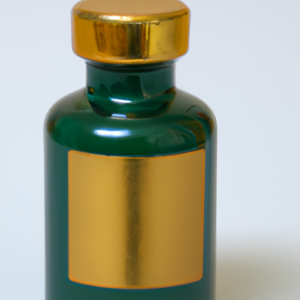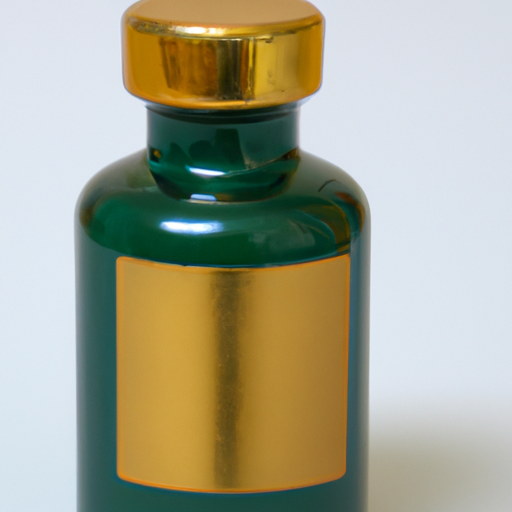This Ain’t a Cover-Up, Let’s Learn About Acne
Alrighty, let’s chat about acne. Now, I ain’t no expert, but I’ve had my fair share of flare-ups, so I know a thing or two. Acne is a skin condition where you get pimples, blackheads, and whiteheads on your face, neck, chest, and/or back. It happens when your hair follicles get clogged with oil and dead skin cells. Ain’t that a charming thought?
If you’re like me, you’ve probably spent some time wandering the drugstore aisles, trying to figure out which treatment to buy. There are a bunch of over-the-counter options available, from creams and gels to pads and oral treatments. Let’s take a closer look at these treatments and see what they’re all about.
Types of Over-the-Counter Treatments
Alright, folks, let’s talk about the different types of over-the-counter treatments you can use to treat your acne. First up, we have creams, lotions, and gels. These are topical treatments that you apply directly to your skin. They typically contain ingredients like benzoyl peroxide, salicylic acid, and sulfur, which help to unclog pores and reduce inflammation.Next, we have pads and swabs. These are similar to creams and lotions, but they come in a convenient pre-soaked pad or swab that you can use to apply the treatment. These are great for on-the-go use, or for those times when you don’t want to get your hands dirty.Last but not least, we have oral treatments. These are medications that you take by mouth, and they are typically used for more severe cases of acne. They include antibiotics like tetracycline, erythromycin, and doxycycline, which can help to kill the bacteria that cause acne. There are also oral contraceptives that can help regulate hormone levels, which can be a contributing factor to acne.So there you have it, folks. Those are the three main types of over-the-counter treatments for acne. Remember, everyone’s skin is different, so what works for one person may not work for another. It’s always a good idea to talk to your doctor or a dermatologist before starting any new acne treatment.Get Clear Skin with Over-the-Counter Treatments for Acne
Luckily, there are plenty of over-the-counter treatments available today that can help you say goodbye to acne. Here are some benefits of using them:
Effective in Treating Mild to Moderate Acne: Over-the-counter treatments can be highly effective in treating mild to moderate acne. These treatments usually consist of topical creams, gels, or lotions that are applied directly to the affected area of the skin. They work by reducing inflammation, killing bacteria, and promoting the shedding of dead skin cells. In addition to clearing up existing blemishes, over-the-counter treatments can also help prevent new breakouts from forming.
Convenient and Accessible: Over-the-counter treatments are incredibly convenient to use. You can find them at your local drugstore or supermarket, and they usually come with clear instructions for use. Unlike prescription medications, which require a doctor’s visit and a trip to the pharmacy, over-the-counter treatments can be purchased and used without any hassle.

Cost-Effective: Over-the-counter treatments are much more affordable than prescription medications. In fact, some of the most effective treatments can be found for under $10! By using over-the-counter treatments, you can save a significant amount of money while still achieving clear skin.
While over-the-counter treatments can be highly effective for mild to moderate acne, they may not be the best option for everyone. If you have severe acne or are experiencing side effects from your treatment, be sure to consult with a dermatologist. With the right treatment plan, you can achieve clear, healthy skin that you can be proud of!
Potential Drawbacks and Risks
Okay, now let’s talk about the not-so-good stuff. While over-the-counter acne treatments can be helpful for mild to moderate cases, they’re not always the best option for everyone. Here are a few things to keep in mind:
First off, if you have severe acne, over-the-counter treatments might not be enough to clear it up completely. If you’re not seeing any improvement after a few weeks, it might be time to talk to a dermatologist about prescription options.
Second, some over-the-counter treatments can actually make your acne worse if you use them too much or in the wrong way. For example, if you use an acne cream that contains benzoyl peroxide too often, you might end up drying out your skin and causing more breakouts. It’s important to read the directions carefully and use these products as directed.
Finally, over-the-counter acne treatments can have some side effects, although they’re usually mild. Some people might experience redness, itching, or a burning sensation when using certain products. If you notice any unusual reactions, stop using the product and talk to your doctor or pharmacist.
Overall, over-the-counter acne treatments can be a great option for many people. Just keep in mind that they’re not a one-size-fits-all solution, and there are potential risks involved. If you’re not sure which products are right for you, talk to a healthcare professional for guidance. And if you’re interested in trying some natural remedies for acne, check out BrightSideBeauty’s helpful list of at-home options.
Say Goodbye to Acne: My Final Thoughts on Over-the-Counter Treatments
After researching and trying multiple over-the-counter treatments, I must say that I’m impressed with their effectiveness in treating mild to moderate acne. These treatments include creams, lotions, gels, pads, swabs, and even oral medications. They’re convenient, accessible, and cost-effective, making them a great option for those who want to clear their skin without breaking the bank.
However, it’s important to note that these treatments may not be as effective for severe acne, and there’s a potential risk of side effects. It’s always best to consult with a dermatologist before starting any acne treatment regimen.
Overall, for those dealing with mild to moderate acne, over-the-counter treatments can be a game-changer. They’re easy to use and can provide significant results. But, if you’re dealing with severe acne, it’s best to seek professional advice. Don’t be afraid to speak with your dermatologist and find the best treatment plan for you.
So, say goodbye to acne with the help of over-the-counter treatments, but remember to prioritize your skin’s health and safety above all else.
